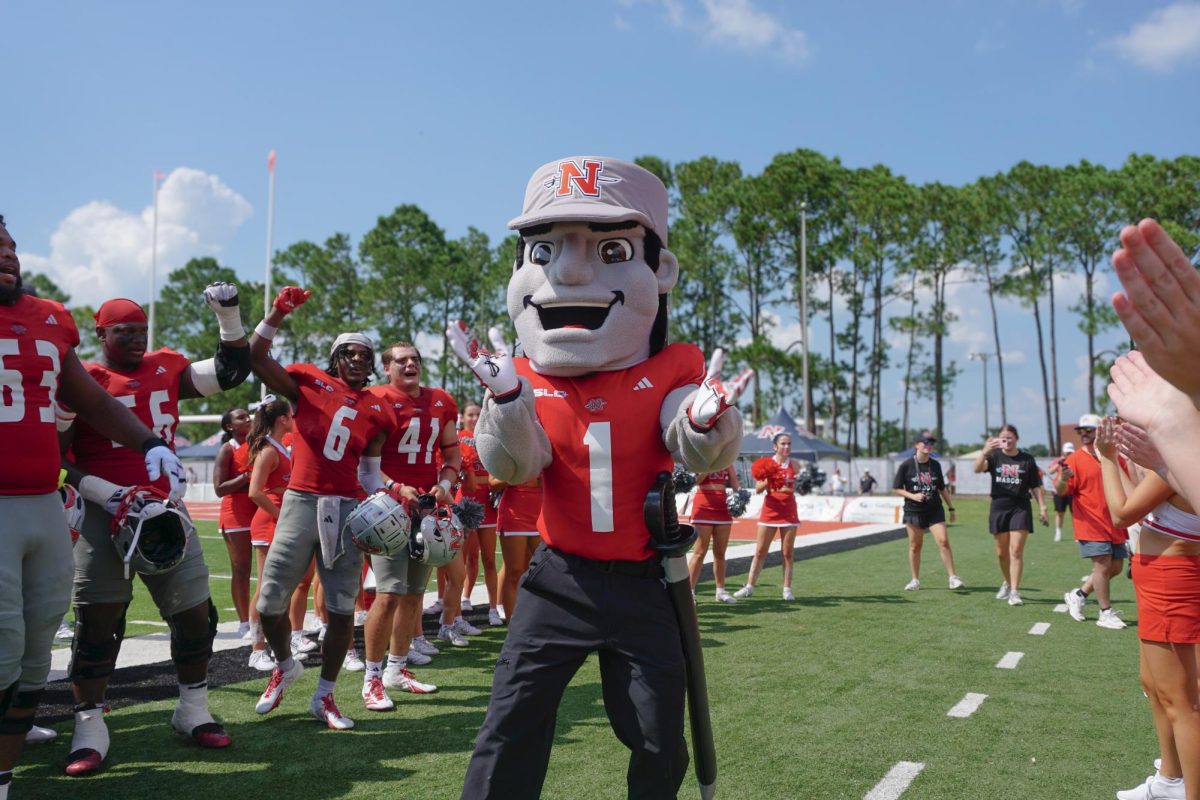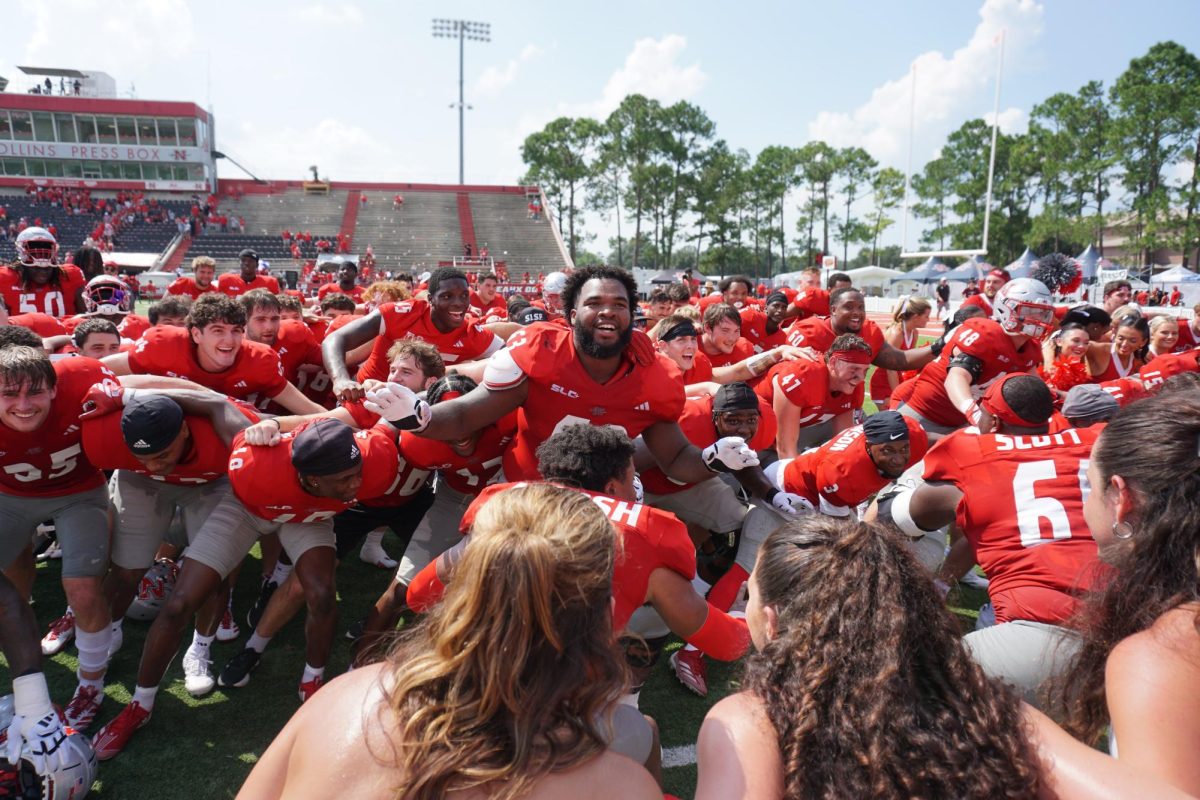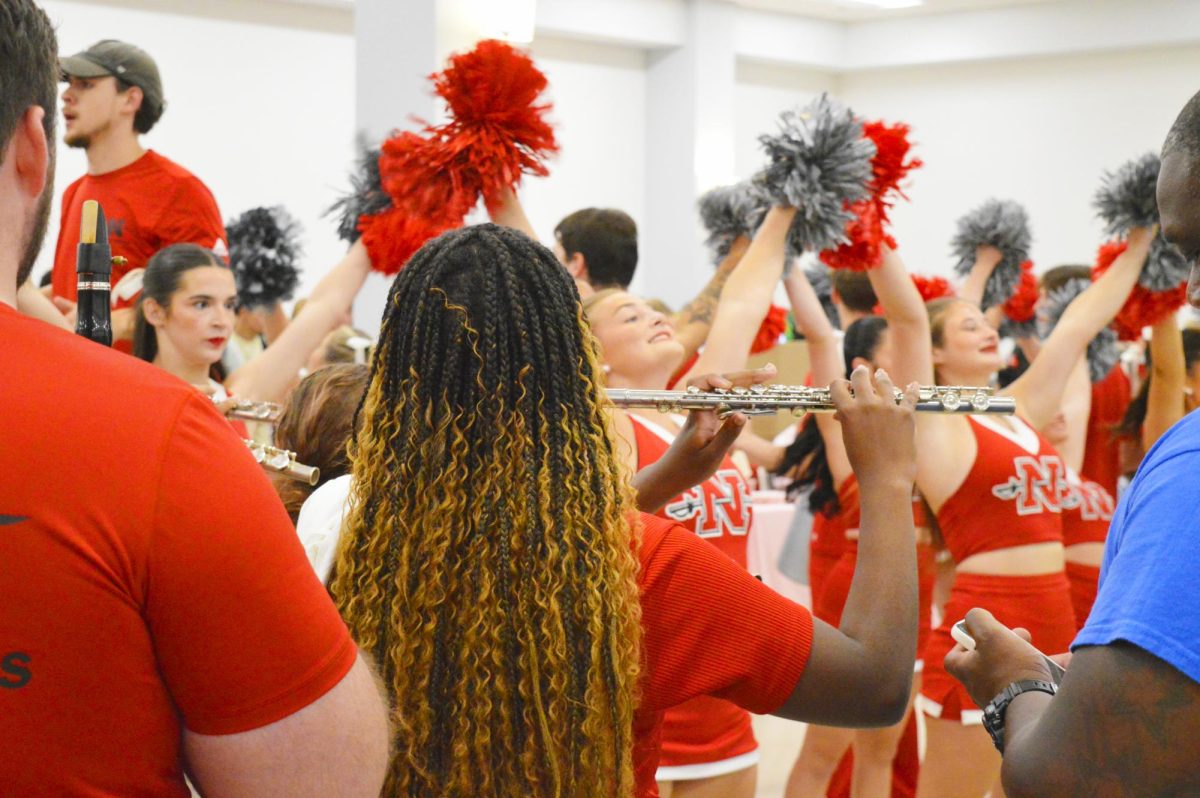While many people watch from far away as the bloodshed unfolds in Afghanistan, one Nicholls professor has his own experiences and feelings about what is happening in the war-torn country where he once lived. Dr. Samuel A. Perez, assistant professor of education, served in the Peace Corps in Afghanistan in the early 1970s.
Perez taught English as a foreign language to employees of Afghanistan’s ministry of finance.
“It was sort of an unusual job because I taught the head of customs, the head of the post office. They all had bachelor’s degrees from Kabul University, and they wanted to learn English to get scholarships to Britain or America.”
Perez served in Afghanistan from December 1972 to February 1973.
“I was supposed to be there two years,” Perez said.
“I didn’t get to serve my full time because my wife got ill. She got ancillary dysentery. Everything you ate there would make you sick. Everything had so much bacteria we’re not used to.
“She ate one of the things we were told to avoid: salad. You could never wash salad well enough.”
Perez got involved with the Peace Corps as a young man.
“Well, I wanted to adventure,” he said.
He said the Peace Corps served two purposes: helping third-world countries and familiarizing people of the third-world with Americans.
“We had a very limited income so that we would live closer to the people. For example, I made $100 a month. Still, that was rich compared to the typical Afghan people.
“About 30 of us went over together. Some were nurses. Some worked in agriculture. Some taught English as a foreign language. The people really liked us, particularly learning their language. That just really impressed them.”
It was essential to learn the local language to survive, he said, and the Afghanis liked Americans because of this.
Perez said he became close to a few Afghanis.
“I had a servant. You had to have a servant. There was no refrigeration,” he said.
“So, you hired a servant who would go buy your food in the market and cook it. Refrigerators were too expensive. They were prohibited. We had electricity, but it went on and off a lot.”
Everything was heated by wood stoves.
“The servant cooked and cleaned your house. We didn’t have a single chair in our home. We sat on the floor and slept on the floor.”
The servant was one of the few traditional Afghanis Perez got to know.
“Well, the Peace Corps employed a lot of Afghanis. We got to know them. But, of course, they were very westernized. There were two types of people in Afghanistan. There were the educated, who tended to be more westernized and wore western closed. Then there were the traditional people.”
Soon after Perez left Afghanistan, there was a shift in power that would become just one link in the chain of events that has led Afghanistan to become such a hostile place.
“They had a king when I was there, the same king they’re talking about [bringing back now.] He’s 86 years old. He had been king 40 years when I was there,” Perez said.
“He went to Rome for eye surgery, and a cousin overthrew the government with Soviet backing. That was a couple of weeks after I left. It was a bloodless revolution.”
This, he said, would lead to Soviet domination of Afghan government. However, the Soviet-backed government evicted the Peace Corps shortly after Perez left.
“When they no longer could control the Afghan government – because the Afghans rebelled against the Soviet-imposed leadership – that’s when the Soviets came in and had the civil war.”
Perez said the United States then began to neglect Afghanistan, something he said was a mistake.
“I think what happened that’s pretty widely acknowledged is that during and after the Cold War, America just walked away from Afghanistan,” he said. “Even when the Russians left and the Taliban took over, America didn’t have anything to do with Afghanistan except to supply arms to the rebels.”
The result of this policy, Perez said, is the Afghanistan of today, quite different from the Afghanistan he knew.
“But, while the Peace Corps was there, Americans were quite popular. I saw no Islamic extremism. People as a general rule liked Americans, but they liked westerners, not just Americans. There were a lot of European aid workers there,” he said.
“It was considered the poorest country in the world. It was the toughest Peace Corps assignment. More people had to leave early because of illness, or they just couldn’t handle the culture. The living conditions were so basic.”
Perez said he lost 15 pounds in the three months he was in Afghanistan.
He said the Afghanistan of the early 1970s was more moderate than the Saudi Arabia of today. He said there was a Coca-Cola bottling facility and a winery while he was there.
Perez said the British were also popular in Afghanistan, despite the widespread antipathy towards the British as a result of their history of imperialism.
“See, no one ever conquered Afghanistan. The British didn’t, the way they conquered Pakistan and India. Now, it also meant Afghanistan had no rail system. Can you believe a country with no railroads? They had an airline, but we were not allowed to fly it because it was so dangerous,” he said.
The Soviets, however, were disliked by the Afghanis.
“I shared a classroom with a Soviet,” Perez said. “I taught three one-hour classes in the morning. Russians came in the afternoon to teach economics. They were not friendly at all.”
He said religious differences were involved.
“When we were there, the people liked Americans more than they liked the Soviets because they would say that Americans had a Bible. The Soviets were an atheist country,” Perez said.
He said they tended to like Westerners more, even though they were not Muslims.
Perez compared this to people liking Vice-Presidential candidate Joe Lieberman in the 2000 elections. Many voters liked Lieberman because he was religious, not because he was Jewish.
“I didn’t know anything about Islam. Mohammed was a seventh-century prophet. Muslims accept Jesus Christ and all the other Christian prophets, but they just believe that Mohammed was the last prophet. They weren’t anti-Christian,” Perez said.
The Peace Corps would try to hire couples because couples tended to stay longer.
“It’s very rough being single because you can’t get any women. So, it was very lonely being a guy there. The biggest problem for the women was the Islamic attitude towards women’s rights. Women would be hassled.
“My wife was hassled, pushed, shoved on the streets. The women you saw out on the streets wore veils that covered their whole bodies. So, I never got to know that many women. There were young women students.”
These women, however, were educated and Westernized.
“It was almost impossible to get to know a traditional Afghan woman,” he said.
However, he commented that the plight of women in Afghanistan is even worse today.
“The Taliban is extreme. They won’t even allow women to go to school or work,” Perez said.
So, how did Afghanistan become a haven for terrorists?
“I think it happened because the U.S. left and abandoned Afghanistan,” Perez said.
“But, the U.S. did supply military aid to almost anyone who would fight against the Soviets. The Taliban’s weapons are U.S. weapons. But, after the Cold War, America became self-absorbed. I think things will change now.
“I think the U.S. has learned that you can’t abandon a country like that, because, by abandoning a country, radicals take over,” he said.
“As someone said, I don’t think a terrorist is born. A person becomes a terrorist because of a condition.”
Perez said his experience in Afghanistan was a humbling one.
“It sounds corny,” he said, “but if you ever have a third-world experience – and that is the ultimate third-world experience – you learn to better appreciate America because of things we take for granted, like drinking water out of a tap and not having to worry. “When’s the last time you worried about what you ate in terms of it having bacteria? We couldn’t drink milk because the cows had tuberculosis. The only fruit you could eat were bananas because you could peel them.”
Despite the hardships, Perez said he enjoyed his time in Afghanistan.
“I got enormous satisfaction working there. I enjoyed what I did,” he said.
However, with the attitude the U.S. took since the 1970s, Perez said he has the tendency to feel his work was in vain.
“I thought years ago that it was unwise to abandon Afghanistan. I think we’ve probably learned the lesson that that’s where this radicalism can develop, when we pull back and isolate ourselves,” he said.
“If there’s a silver lining to what’s happening now, it is that we will not abandon that part of the world again.








